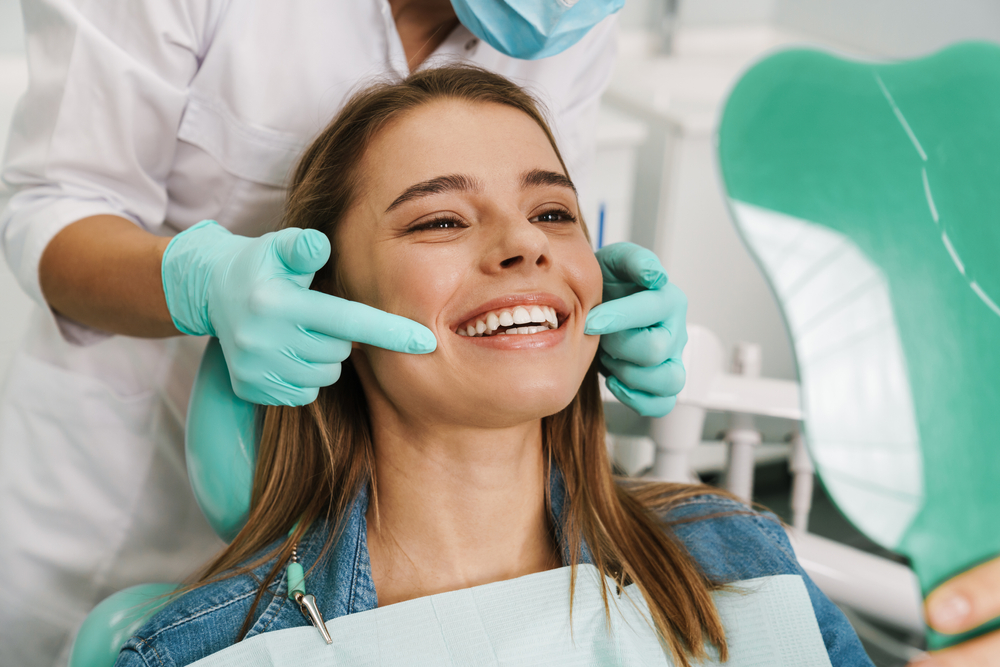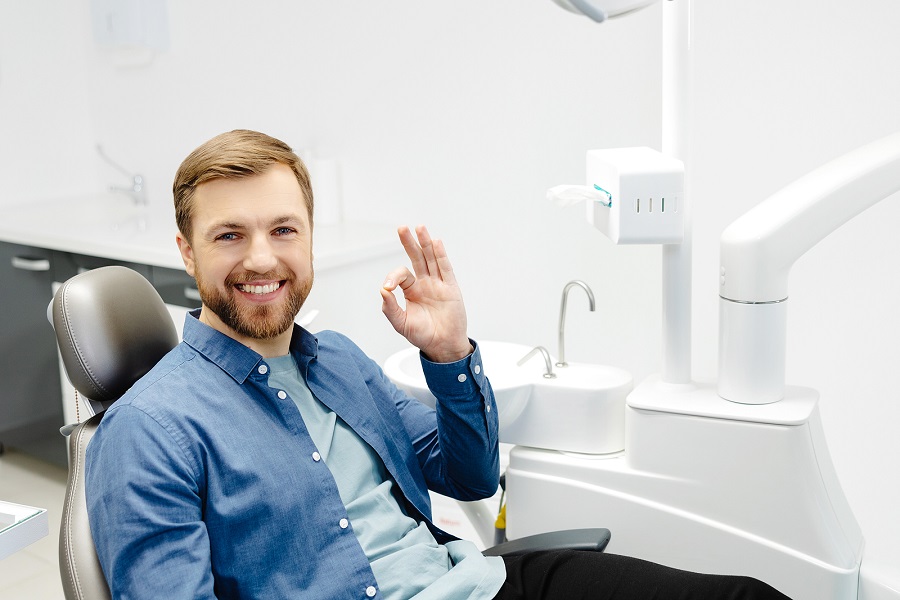![This is a thumbnail image of blog Ask a General Dentist: What Does Saliva Do for Our Mouths? This is a thumbnail image of blog Ask a General Dentist: What Does Saliva Do for Our Mouths?]()
Ask a General Dentist: What Does Saliva Do for Our Mouths?
May 16, 2023![Smile Makeover in Lake Forest, CA Smile Makeover in Lake Forest, CA]()
Transform Your Smile: The Power of a Smile Makeover
Mar 28, 2024![This is a thumbnail image of blog What Procedures Are Performed by a Laser Dentist? This is a thumbnail image of blog What Procedures Are Performed by a Laser Dentist?]()
What Procedures Are Performed by a Laser Dentist?
Jul 18, 2023![Same-Day Implants In Lake Forest, CA Same-Day Implants In Lake Forest, CA]()
Why Dental Implants Are A Game-Changer In Restorative Dentistry?
Sep 19, 2024![This is a thumbnail image of blog Achieve a Radiant Smile: Teeth Whitening in Lake Forest, CA This is a thumbnail image of blog Achieve a Radiant Smile: Teeth Whitening in Lake Forest, CA]()
Achieve a Radiant Smile: Teeth Whitening in Lake Forest, CA
Aug 02, 2024
EMAIL OR CALL: (949) 855-0176
- Patient Education
- Blogs
- Why Are My Gums Bleeding?
- Will I Need a Bone Graft for Dental Implants?
- Which is Better - Invisalign or Braces?
- When Is a Tooth Extraction Necessary?
- What Should I Do if I Chip My Tooth?
- What Do I Do if I Damage My Dentures?
- What Can I Do to Improve My Smile?
- Oral Hygiene Basics
- Oral Cancer Screening
- Options for Replacing Missing Teeth
- Improve Your Smile for Senior Pictures
- I Think My Gums Are Receding
- Do I Need a Root Canal?
- Do I Have Sleep Apnea?
- Reviews
- Contact

What to Expect on a Routine Dental Exam
Welcome to our dental blog! We're delighted to have you here as we delve into the world of routine dental exams. Whether you're a seasoned pro in the dentist's chair or feeling nervous about an upcoming appointment, this blog post is here to guide you through what to expect during your next visit.
Regular dental exams are essential for maintaining good oral health and preventing potential issues down the road. But what exactly happens during these appointments? How often should you schedule them? Don't worry; we've got all the answers right here.
Importance of Regular Dental Exams
Regular dental exams are not just a formality or something to check off your to-do list. They play a crucial role in maintaining good oral health and overall well-being. By scheduling routine dental exams, you're taking proactive steps toward preventing potential dental issues before they become major problems.
During these exams, dentists can identify early signs of tooth decay, gum disease, and other oral health concerns. Catching these issues in their initial stages allows for more straightforward treatment options and potentially saves you from more extensive procedures down the line.
Not only do regular dental exams help detect existing problems, but they also aid in preventive care. Dentists can thoroughly clean your teeth and remove any plaque or tartar buildup that may have accumulated since your last visit. This thorough cleaning helps prevent cavities and gum disease by keeping your teeth and gums healthy.
Additionally, routine dental exams often include an examination of the soft tissues in your mouth, including the tongue, cheeks, and throat. This is important because it allows dentists to spot any abnormalities or signs of oral cancer early on when treatment is most effective.
By prioritizing regular dental exams as part of your healthcare routine, you're investing in long-term oral health benefits while minimizing future discomfort and expenses associated with more severe dental conditions. So don't wait until there's pain or visible damage—schedule those routine dental appointments regularly! Your smile will thank you!
What Happens During a Routine Dental Exam?
During a routine dental exam, you can expect your dentist to thoroughly assess the overall health of your mouth. The exam usually begins with a discussion about any concerns or symptoms you may be experiencing. Your dentist will then take a close look at each tooth, checking for signs of decay, cavities, or damage. They will also examine your gums for any signs of inflammation or gum disease.
Next, your dentist may perform a professional cleaning to remove plaque and tartar buildup from your teeth. This helps prevent future dental problems and keeps your smile looking its best. They will use specialized tools to carefully scrape away any buildup and polish the surfaces of your teeth.
In addition to examining and cleaning your teeth, a routine dental exam often includes an oral cancer screening. Your dentist will check for any abnormal growths or lesions in and around the mouth that could indicate early signs of oral cancer.
If necessary, X-rays may be taken to get a more detailed view of specific areas in the mouth that cannot be seen with the naked eye alone. These images can help reveal hidden issues such as impacted teeth or bone loss.
A routine dental exam is essential for maintaining good oral health and preventing potential problems down the line. So don't skip those regular visits – they are key to keeping your smile bright and healthy!
How Often Should You Get a Dental Exam?
Regular dental exams are crucial for maintaining good oral health. But how often should you really go in for a check-up? The recommended frequency of dental exams can vary depending on your individual circumstances. For most people, it is generally advised to visit the dentist every six months. This allows your dentist to closely monitor your oral health and catch any potential issues before they become major problems. However, some individuals may require more frequent visits based on their specific needs. If you have a history of gum disease or tooth decay, or if you are prone to developing cavities, your dentist may recommend more frequent exams – perhaps every three to four months. On the other hand, if you have excellent oral hygiene and no significant dental concerns, visiting once a year might be sufficient.
The best person to determine how often you need a dental exam is your trusted dentist. They will assess factors such as overall oral health status, risk factors for certain conditions, and personal habits like smoking or grinding teeth.
Remember that prevention is key when it comes to oral health! By attending regular dental exams at the appropriate intervals determined by your dentist's recommendations, you can ensure that any potential issues are caught early and treated effectively. So don't neglect those routine check-ups – schedule yours today!
Conclusion
Regular dental exams are a crucial part of maintaining good oral health. By scheduling routine visits to your dentist, you can detect and prevent potential problems before they become serious issues. During these exams, your dentist will thoroughly examine your teeth, gums, and mouth for any signs of decay or disease.
The importance of regular dental exams cannot be overstated. Not only do they help maintain the health and appearance of your teeth, but they also contribute to your overall well-being. Poor oral hygiene has been linked to various health conditions, such as heart disease and diabetes. By taking care of your oral health through routine dental exams, you are safeguarding not just your smile but also your overall health.
By making sure to schedule regular appointments with your dentist and following proper oral care practices at home – such as brushing twice daily with fluoride toothpaste, flossing regularly, and eating a balanced diet –you can ensure that you have strong teeth and gums that last for years to come!
So don't neglect those routine dental exams -your smile deserves it!
Visit Our Office
Office Hours
- MON9:00 am - 3:00 pm
- TUE10:00 am - 7:00 pm
- WED - THU8:00 am - 5:00 pm
- FRIBy appointments only
- SAT - SUNClosed





comments